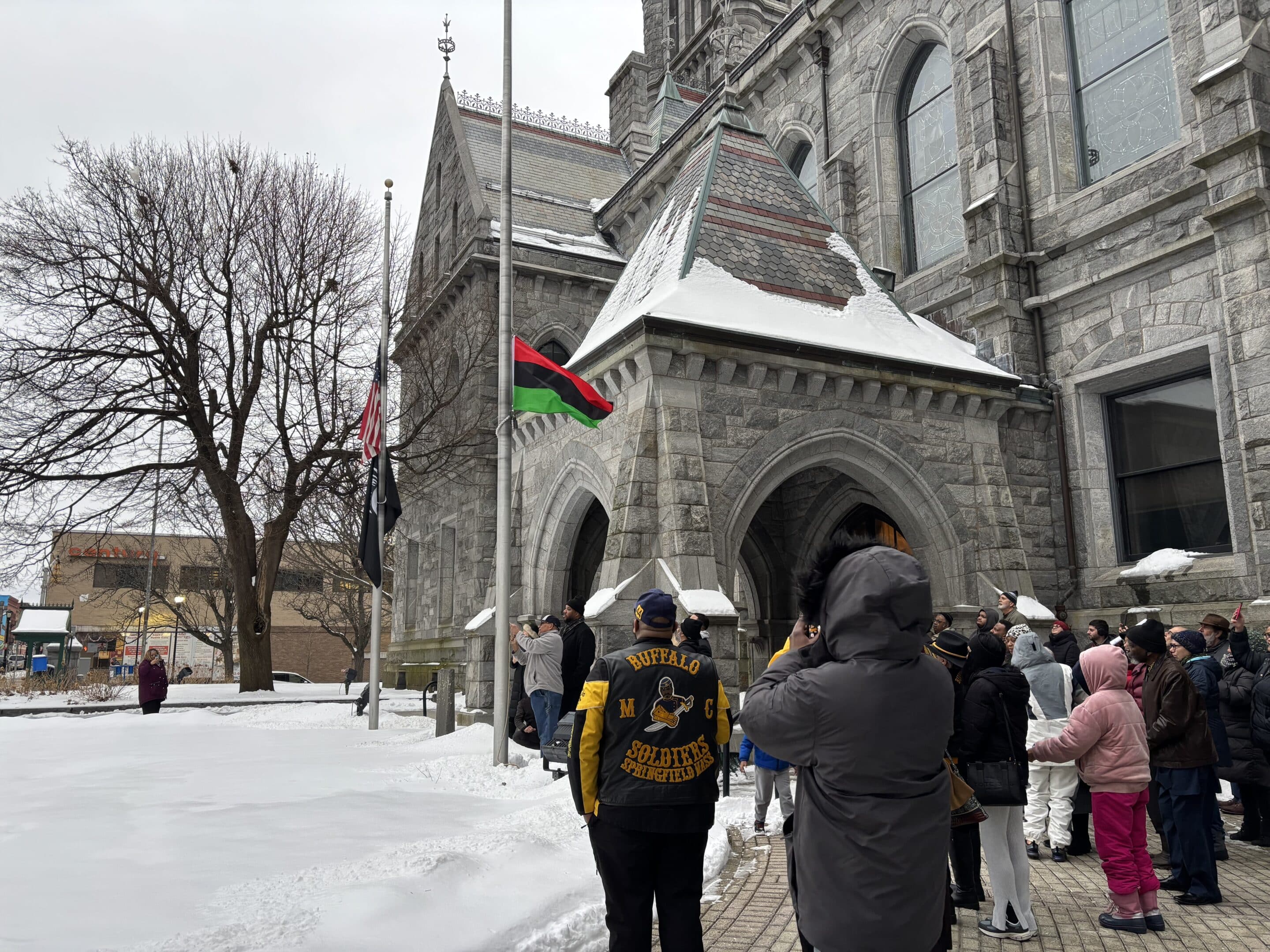The Holyoke community gathers in front of City Hall as the African American flag is raised for the first time in honor of Black History Month.
Reminder Publishing photo by Tyler Garnet
HOLYOKE — Holyoke recognized Black History Month, which is observed every February, with a flag-raising ceremony at City Hall on Wednesday, Feb. 12, followed by a storytelling program at the Holyoke Public Library.
Speakers at the flag raising included Willie Spradley Jr., a member of the leadership team at Bethlehem Baptist Community Church, and Mayor Joshua A. Garcia, who read an official proclamation.
Before reading the proclamation, Garcia talked about this specific flag raising and how it differs from the other heritages and cultures the city recognizes.
“There is a particular urgency in our observance of Black History Month. Throughout the United States, in state houses as well as the White House, the histories and identities of minorities and marginalized communities are being undermined. It is an honor for me to have this incredible opportunity to affirm Holyoke’s historic embrace of diversity.”
Spradley also talked about the history of Black History Month and broke down the meaning of the African American flag.
The red represents the blood that unites all people of African American ancestry and was shed for the liberation. The black represents Black people whose existence as a nation, though not a nation state, is affirmed by the flag. Green represents the abundant and natural wealth of Africa.
This is the first time that Holyoke has raised the African American flag in honor of Black History Month.
“Understand you are part of history,” Spradley stated, “With the challenges we’re dealing with now in this country, and I’m not going to get political, but with the challenges we’re dealing with for you to be here to support this first ever event says a lot about you and your character.”
Carter G. Woodson initiated the concept of Black history observance 99 years ago. He founded Negro History Week in 1926 to coincide with the birthdays of abolitionist Frederick Douglass and former President Abraham Lincoln.
Negro History Week continued gathering momentum for decades before the observance and teaching of Black Americans became a cultural fixture following its expansion to Black History Month in February 1976 during Gerald Ford’s administration.
Garcia read the proclamation to officially recognize February as Black History Month throughout the city of Holyoke.
The storytelling program took place in the Community Room at the library. Holyoke natives Dian McCollum, Doug Griffin and the Rev. Bernard Smith shared their stories.
The African American tradition of storytelling is a deeply rooted practice where stories are passed down orally through generations.
Storytelling was especially important during the period of slavery when other forms of cultural expression were suppressed. Storytelling was the first opportunity for Black slaves to represent themselves as anything other than property.



